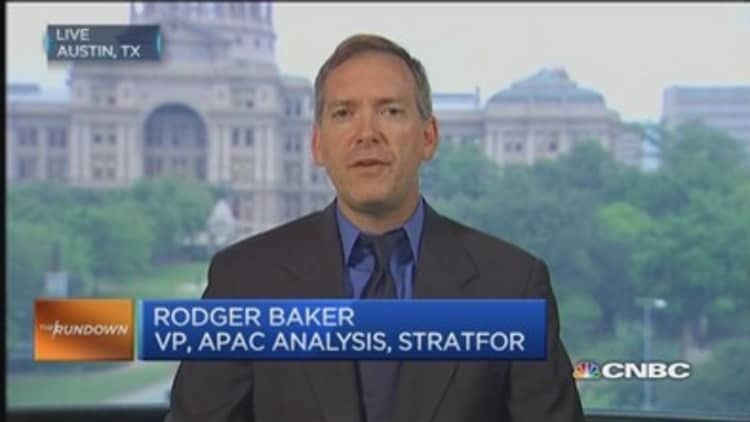
The suicide of a powerful tycoon, corruption allegations, and the looming resignation of a prime minister: This may sound like a Hollywood drama, but it's just the latest headache for South Korean President Park Geun-Hye.
Sung Wan-jong, the former head of construction firm Keangnam Enterprises, killed himself last Thursday and left a note implicating several politicians within the President's ruling Saenuri Party of corruption, including Prime Minister Lee Wan-koo and Park's chief of staff Lee Byung-kee.
PM Lee is accused of accepting 30 million won ($28,000) from Sung, but denied any wrongdoing in a parliament grilling this week.
The scandal comes at an inopportune time for Park, whose administration is still reeling from the Sewol ferry disaster that claimed over 300 lives one year ago this week. Park's popularity levels remain stuck below 40 percent after touching a record low of 29 percent in February, according to Gallup Korea. Moreover, the scandal threatens the Saenuri Party's chances of victory at next year's parliamentary general election.
Read MoreAs Korean economy stumbles, booze flourishes
"Park has issued statements saying she won't accept any corrupt officials in her party, so it seems like she may get the Prime Minister Lee to resign or step down," said Rodger Baker, vice president of Asia-Pacific analysis at Stratfor.
If Lee resigns, he would be the second prime minister to resignation within a year. His predecessor, Chung Hong-won, stepped down last April due to the government's poor response to the Sewol ferry disaster.
It’s not just corruption
"It's hard for this crisis not to have at least some impact [on Park]. Her administration has already faced a lot of criticism on reforms as well as international junkets," Baker said. This week's events interfere with her ability to focus on policy issues and help push them through the parliament, he added.
The government's lack of progress on labor market reforms is weighing heavily on Korea's competitiveness, Deutsche Bank said in a report on Friday. The Federation of Korean Trade Unions (FKTU) walked away from recent negotiations after the government proposed introducing guidelines to lay off regular workers for poor performance.
"Deregulation is a key to effectively limiting rent-seeking opportunities and thus an integral part of reducing corruption. However, without a strong political mandate from the National Assembly, the government is unlikely to make significant headway," Deutsche Bank said.
Meanwhile, Park has also come under pressure over her resistance to soothing diplomatic ties with Japan and North Korea. She insists that Tokyo and Pyongyang both apologize for past events before opening the path for bilateral talks.
Speaking to CNBC on the sidelines of the International Monetary Fund's annual spring meeting, South Korean finance minister Choi Kyung-hwan said he wasn't too concerned about the scandal.
"I don't believe this could impact the Korean economy. The Korean government will persist in its major reforms and we will continue to implement our economic policy and we will not waiver."


